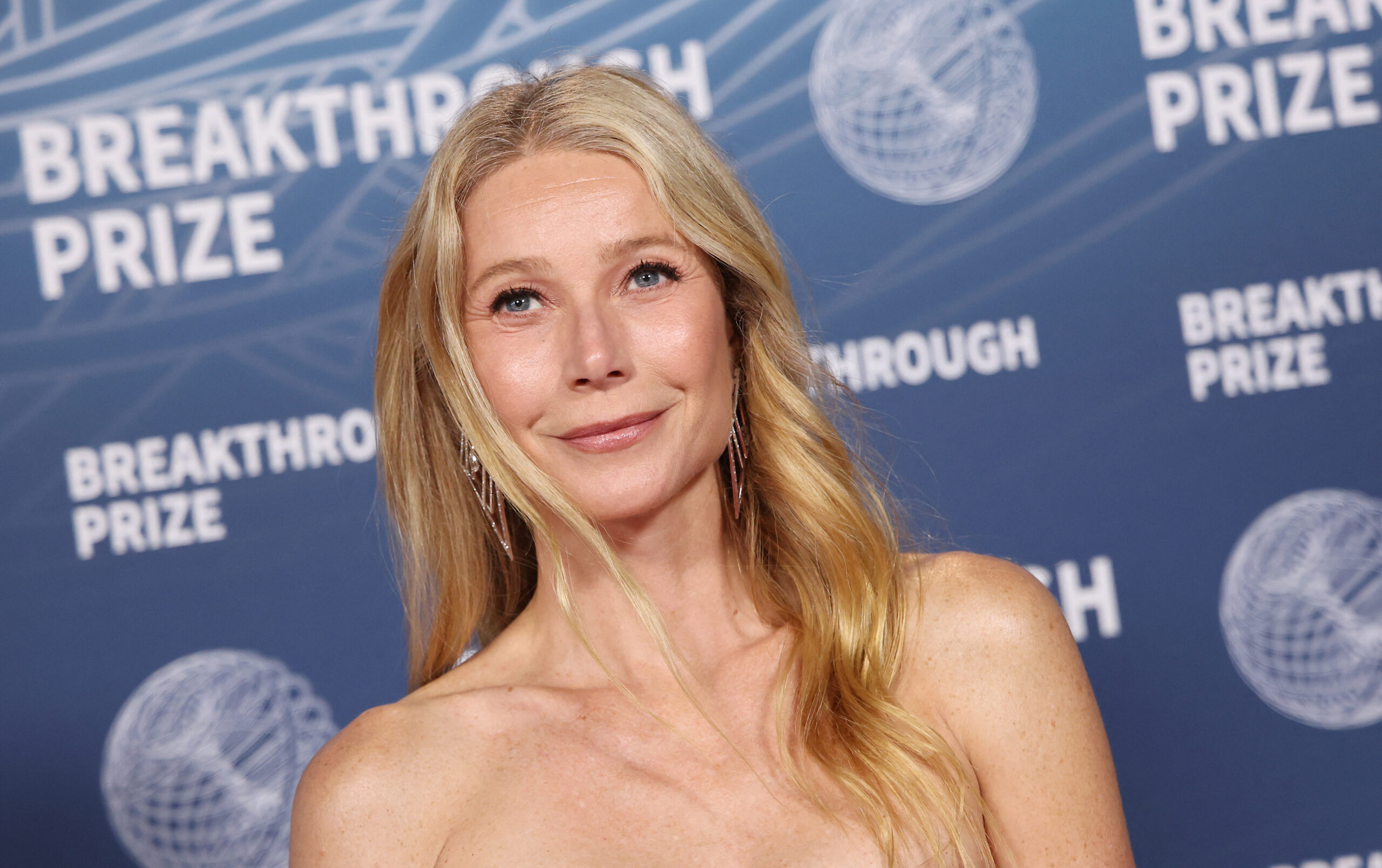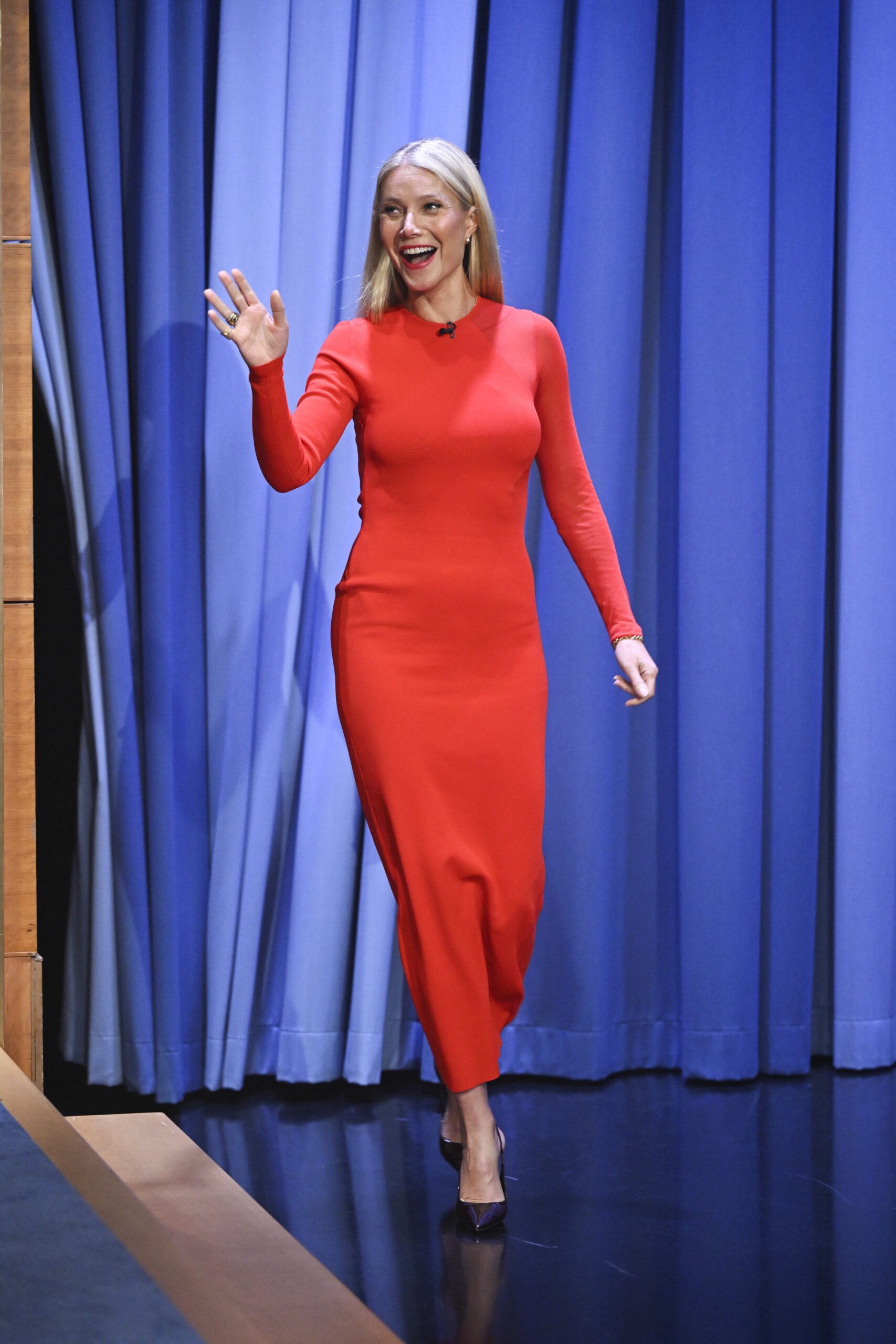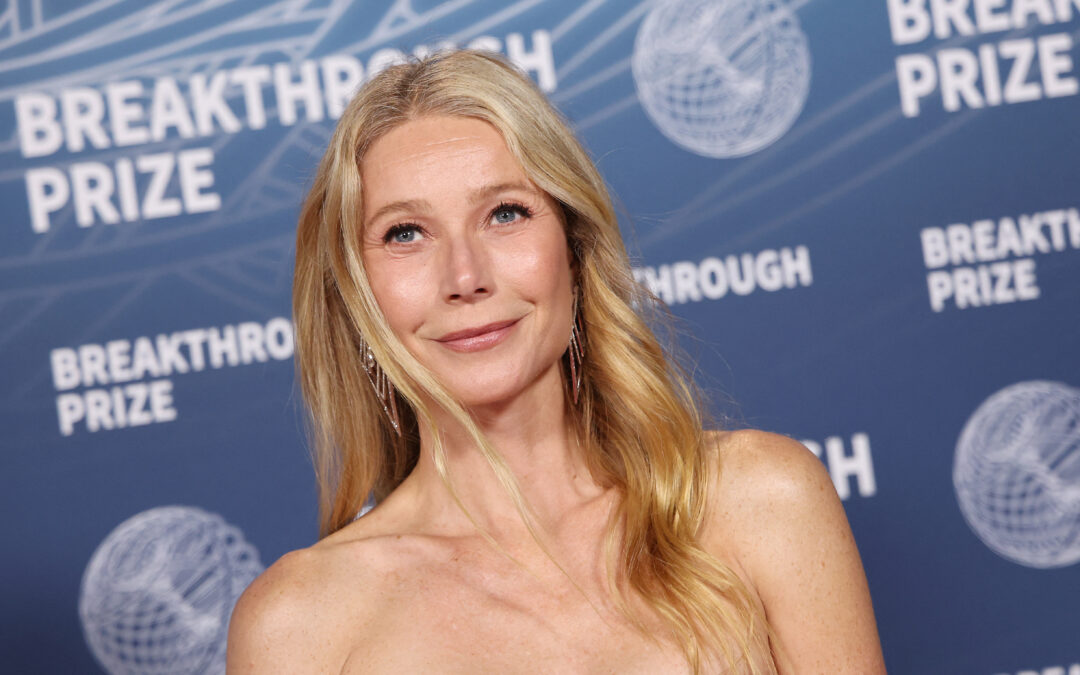Describing Gwyneth Paltrow’s figure as ‘IDGAF’ is a hugely backhanded compliment – here’s why
It still contributes to a narrative that a woman’s worth and identity is attached to how her body looks.
Words by Charley Ross

Recent reports that describe Gwyneth Paltrow’s ‘bikini body’ may be well meaning, but there’s a dark side to the commentary.
This week, Paltrow was pictured holidaying in Capri on a luxury yacht with her partner Brad Falchuk and actor Edward Norton. Photographed in her swimsuit, headlines about the 52-year-old described her figure as ‘IDGAF’ (‘I don’t give a f**k’), noting that the wellness guru has recently undergone a ‘lifestyle shift’ away from the strict dietary rules that underscored her 20s, 30s and 40s.
‘I’m getting back into eating sourdough bread, and some cheese – there, I said it,’ Paltrow said in a recent Good podcast episode. ‘A little pasta after being strict with it for so long.’ Her admission, genuinely, made headlines. She went on to describe a ‘hardcore macrobiotic’ diet she used to follow, which she says became an obsession.
‘I went into hardcore macrobiotic for a certain time, that was an interesting chapter where I got obsessed with eating very, very healthily,’ Paltrow explained. ‘I really deepened my connection with food and the whole philosophy around macrobiotics which is essentially just how they eat in the mountains of Japan so very local and seasonal.

‘Lots of fish, vegetables, rice, no diary, no sugar etc. I think that period of time I might have got a little didactical about it.’
Maybe just a little! But seriously, it’s great that Paltrow has seemingly loosened the reigns on what she describes as a obsessive attitude towards healthy eating. What’s less great is the resulting commentary that describes her body as ‘IDGAF.’
Why? Because regardless of intention, zoning in on her figure in this way actually suggests a continued regressive attitude when it comes to how we talk about women and their bodies and dietary choices. It suggests that she’s given up, that her figure is reflective of a failure to care – which is far from what Paltrow has described.
This labelling essentially says that moving away from restrictive eating means you don’t care at all about your wellbeing and health. Where is the middle ground and acceptance of women’s bodies in an form, at any age?
Because let’s be real, Paltrow definitely still gives a f*ck. She likely still has a staff of people telling her what she should and shouldn’t eat and guiding her exercise and wellness regimen – unlike the majority of us. Also, the misogynistic culture that Paltrow and myself alike have grown up with has guaranteed that, on some level, we always give a f**k about our body image.
‘a woman’s worth and identity is not attached soley to how her body looks.’
Beyond that, drawing attention to a woman – whether she’s famous or not – due to how her body looks or doesn’t look, or what she is or isn’t eating, is a problem whether or not it’s distinctly complimentary or supportive. It contributes to a narrative that a woman’s worth and identity is attached to how her body looks, instead of all the other aspects of her life. It’s also just quite patronising.
I’m not saying that embracing your body as it ages – which is reportedly what Paltrow is doing – and how empowering that is isn’t a good thing. What I’m saying is labelling her body as in its ‘IDGAF’ era and drawing attention to it in this way is the opposite of empowering, it’s channeling the same narrative that SkinnyTok and other body shaming cultural phenomena does. It reduces a woman down to the size of her body, and nothing else.
The constant narrative around Hollywood women’s bodies continues to be insidious due to the constant overfocus on them – where is their validation from their acting, performing, businesses?

Kate Winslet has spoken out repeatedly about the body shaming she was subjected to throughout her entire career from the duration of filming Titanic at 22 years old back in the 1990s to the present. ‘It’s absolutely appalling,’ she recently said while rewatching footage of reporters questioning her weight and dress size over 25 years ago. ‘What kind of a person must they be to do something like that to a young actress who’s just trying to figure it out?’
More recently, she spoke about being asked to sit up straighter while portraying war photographer Lee Miller in biopic Lee so her ‘belly rolls’ weren’t shown on screen.
‘She wasn’t lifting weights and doing pilates, she was eating cheese, bread and drinking wine and not making a big deal of it, so of course her body would be soft,’ Winslet said of Miller. ‘But I think we’re so used to perhaps not necessarily seeing that and enjoying it – the instinct, weirdly, is to see it and criticise it or comment on it in some way.
‘It’s interesting how much people do like labels for women. And they very much liked them in Lee’s day, and, annoyingly, they sort of still do – we slap these labels on women that we just don’t have for men. It’s absolutely bizarre to me.”
Winslet added in an interview with CBS that as she approaches her 50th birthday, she has stopped listening to other people’s opinions about her body as it has become too ‘exhausting’.
Similarly, Sydney Sweeney posted on Instagram about criticisms she’d received after bulking up to play professional boxer Christy Martin in an upcoming biopic. She posted screenshots of critics calling her ‘frumpy’, ‘butterface’ and ‘chunky’.
It’s almost like as a society, we believe that we have a divine right to pass judgment on a woman’s body, positive or negative, particularly if she’s in the public eye. Whether she gives a f**k about her dress size or not, maybe we should just let Paltrow enjoy her holiday in peace?
Photo: Getty

